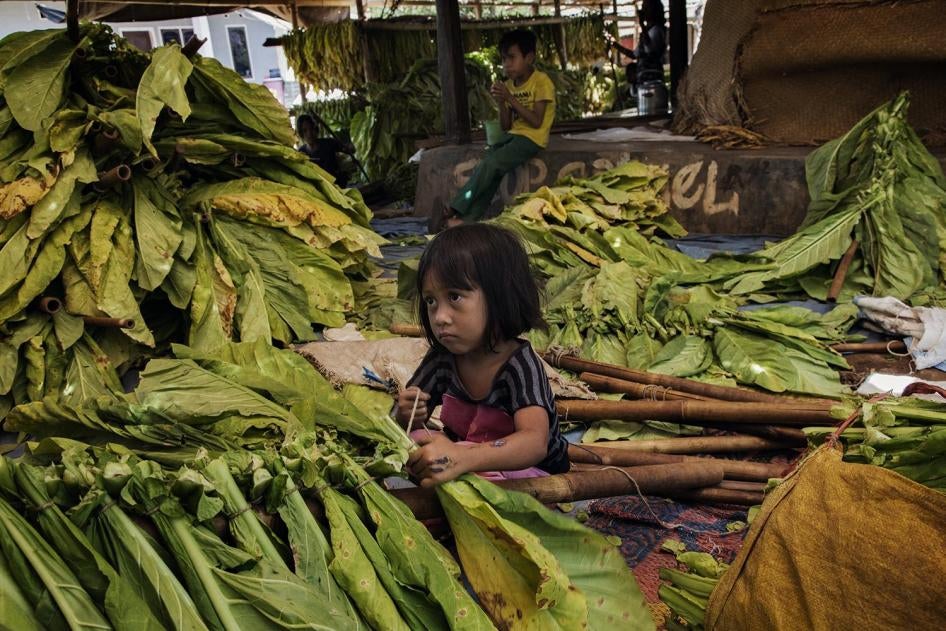Today is World No Tobacco Day, and in Indonesia, where nearly four million children between 10 and 14 become smokers every year, many people will be talking about what Indonesian authorities should do to protect children from the dangers of tobacco. As the government tackles this issue, it also needs to protect thousands of children who are exposed to toxic nicotine while they work on Indonesia’s tobacco farms.
Last week, I was in Jakarta to present new research on child labor in Indonesian tobacco farming. At one meeting, we sat across from half a dozen representatives from the Ministry of Women’s Empowerment and Child Protection. We described how children working on the country’s small, family-run tobacco farms are exposed to nicotine and toxic pesticides, and how half the children we interviewed had experienced nausea, vomiting, headaches, or dizziness – all symptoms consistent with acute nicotine poisoning.
One of the officials told us that she had grown up working on her family’s tobacco farm in Temanggung, Central Java. “I suffered all of these illnesses,” she said.
Another official also grew up among tobacco farming families. “Most parents do not know the danger of the tobacco leaf,” she said.
At a press conference the next day, we called on the Indonesian government and the tobacco industry to take action to protect child tobacco workers.
Some multinational tobacco companies responded to the report; even a tobacco farmers’ group, the Indonesia Tobacco Community Alliance (AMTI), met with us. Notably silent were the Indonesian national tobacco companies – Djarum, Gudang Garam, and others. Before we published our report, we tried to contact these companies dozens of times with no response. It is not clear whether these companies take any steps at all to eliminate child labor in their supply chains.
We met with a range of government ministries, as well as an advisor in the office of President Joko Widodo. We asked them to strengthen Indonesia’s child labor framework to make handling tobacco off limits to children under 18. We also asked them to step up labor enforcement, and carry out a massive public education campaign.
The people we met agree that hazardous child labor in tobacco farming is a problem, and seem eager to take action. But the government needs to act swiftly. The tobacco farming season in Indonesia will be underway in the next few weeks, and without sweeping changes, thousands of child tobacco workers will face danger again this year.











